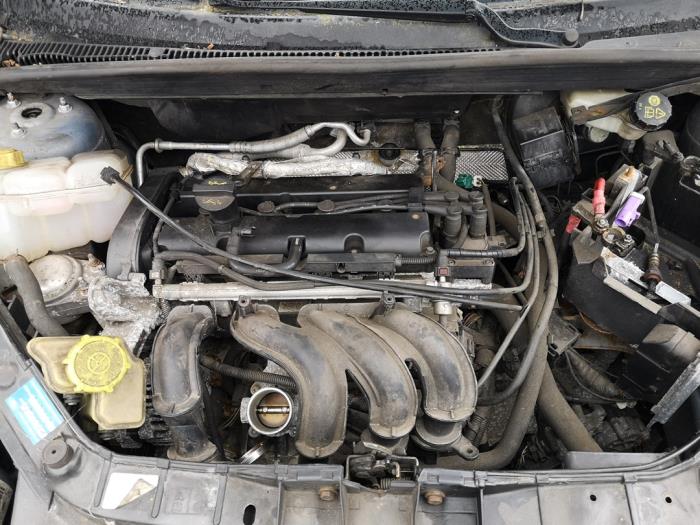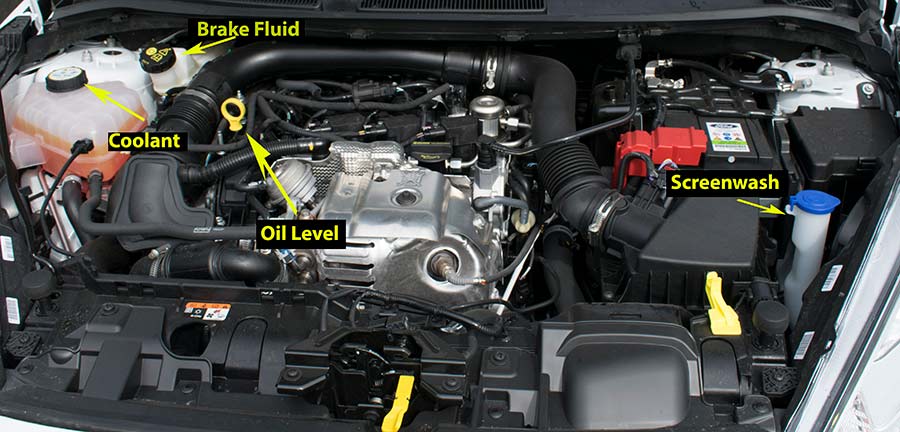Protect Your Investment with Proper Ford Fiesta Engine Maintenance
Protect Your Investment with Proper Ford Fiesta Engine Maintenance
Blog Article
The Future of Engines: Innovations Driving Sustainable Power Solutions
As the automotive industry navigates the vital change in the direction of sustainability, the future of engines is progressively defined by groundbreaking innovations. Electric engine innovations, alongside encouraging advancements in hydrogen gas cells and biofuels, are improving the landscape of power solutions. The appearance of crossbreed systems further complicates this advancement, offering both obstacles and possibilities to lower discharges efficiently. Coupled with the combination of expert system in engine design, these technical strides elevate vital concerns regarding their lasting stability and influence on standard paradigms. What might this imply for the industry and customers alike?
Electric Engine Advancement
The advancement of electrical engine developments represents a critical change in the aerospace and automotive sectors, driven by the urgent requirement for sustainable alternatives to fossil gas. This change is characterized by significant developments in battery modern technology, power electronic devices, and electrical motor style, which collectively boost the effectiveness and efficiency of electric engines.
Current developments have brought about the creation of lighter, much more energy-dense batteries, such as lithium-silicon and solid-state batteries, which promise longer varieties and shorter charging times. In addition, renovations in electric motor performance, such as making use of long-term magnets and advanced cooling down systems, enable electrical engines to operate successfully under differing conditions. These improvements not just improve car efficiency but also add to a decrease in total energy usage.
In addition, the assimilation of innovative software application formulas has enhanced power management in electric lorries, allowing for regenerative braking and predictive charging approaches. As producers increasingly accept electric propulsion, the automotive and aerospace fields are experiencing a paradigm change in the direction of greener technologies. This evolution not only meets governing demands yet likewise lines up with customer choices for ecologically friendly transport solutions, strengthening electric engines as a cornerstone of future sustainable movement.
Developments in Biofuels
As the aerospace and vehicle markets increasingly focus on sustainable energy resources, improvements in biofuels arise as a corresponding option to electrical engines. Biofuels, stemmed from natural products such as crops, waste, and algae, present an innovative method for minimizing greenhouse gas exhausts and dependence on fossil fuels.
Recent research study has actually focused on enhancing the performance and sustainability of biofuel manufacturing. Second-generation biofuels make use of non-food feedstocks, reducing competitors with food supply and decreasing ecological influence. Additionally, developments in synthetic biology have actually enabled the design of microbes to produce biofuels better, causing higher returns and reduced production prices.
Furthermore, the growth of drop-in biofuels permits seamless assimilation right into existing facilities, making it possible for a smoother shift for sectors traditionally based on nonrenewable fuel sources. ford fiesta engine. These fuels can be used in present engines without modifications, facilitating their adoption throughout numerous sectors
Investments in biofuel technology, in addition to helpful policies, are essential to drive development and scalability. As the worldwide neighborhood looks for to fight environment change, biofuels offer a practical, prompt service that lines up with the overarching objective of sustainability in transportation and aeronautics.
Hydrogen Fuel Cell Modern Technology
A growing variety of firms and scientists are discovering hydrogen fuel cell modern technology as a practical choice to standard source of power in transport and power systems. This technology transforms chemical energy from hydrogen right into electrical energy with an electrochemical reaction, with water as the only byproduct, making it an ecologically pleasant alternative.
The core of hydrogen fuel cells is the gas cell pile, where hydrogen molecules are divided into protons and electrons. The flow of electrons generates electricity, while protons move through a membrane layer to combine with oxygen from the air, creating water. This procedure results in high performance and reduced discharges, placing hydrogen gas cells as a crucial gamer in the shift to lasting power.
Significant developments have been made in improving the resilience and performance of gas cells, along with lowering costs through innovative manufacturing strategies. The advancement of hydrogen production techniques, such as electrolysis powered by sustainable power sources, boosts the sustainability of the total system. As framework for hydrogen refueling expands and production techniques come to be extra reliable, hydrogen gas cell technology holds great promise for decarbonizing various markets, consisting of sturdy transportation and stationary power generation.
Hybrid Systems and Their Effect
Hybrid systems represent a considerable development in sustainable engine innovation, merging standard inner combustion engines with electric propulsion to maximize energy efficiency and reduce discharges (ford fiesta engine). This double approach enables automobiles to utilize both source of power, enabling greater adaptability in power usage and reducing dependence on fossil gas

In addition to environmental benefits, crossbreed systems offer consumers a practical shift towards totally electrical cars. They alleviate range anxiety by incorporating the benefit of gas with the benefits of electric propulsion, making them an eye-catching alternative for a wider audience.
The Function of AI in Engine Design
Leveraging sophisticated formulas and artificial intelligence techniques, the auto industry is increasingly integrating synthetic intelligence (AI) right into engine design procedures. AI boosts the performance and effectiveness of design by assessing vast datasets to recognize optimal setups and efficiency criteria. This capability allows designers to imitate various operating problems and anticipate engine behavior under multiple circumstances, significantly lowering the moment and cost connected with traditional prototyping approaches.
In addition, AI facilitates the advancement of sophisticated products and burning processes tailored for sustainability. By optimizing fuel performance and decreasing discharges, AI-driven styles line up with international initiatives targeted at lowering the carbon footprint of automobile engines. Device knowing formulas can likewise anticipate click here to find out more maintenance needs, leading to boosted integrity and durability of engine parts.
In Addition, AI contributes in the combination of electrification modern technologies, such as crossbreed systems, where it can optimize basics battery administration and energy recuperation processes. As the sector relocates towards more lasting power services, the duty of AI in engine style comes to be increasingly important, driving development and enhancing the performance of future engines. Eventually, the cooperation in between AI and engine design declares a brand-new period of smarter, cleaner, and a lot more efficient automobile modern technologies.

Verdict
In conclusion, the future of engines is being shaped by a merging of cutting-edge technologies that prioritize sustainability. Electric engine improvements, biofuel growths, hydrogen gas cells, and crossbreed systems jointly contribute to a considerable reduction in exhausts and ecological effect.
Electric engine advancements, along with encouraging developments in hydrogen gas cells and biofuels, are reshaping the landscape of power solutions. Furthermore, improvements in electric motor efficiency, such as the usage of long-term magnets and progressed cooling down systems, enable electrical engines to operate effectively under varying problems. By maximizing fuel performance and minimizing emissions, AI-driven designs line up with worldwide campaigns intended at minimizing the carbon footprint of auto engines. As the sector relocates in the direction of more sustainable power options, the function of AI in engine design ends up being progressively important, driving technology and improving the efficiency of visit future engines. Electric engine improvements, biofuel advancements, hydrogen fuel cells, and hybrid systems collectively contribute to a considerable reduction in discharges and ecological effect.
Report this page